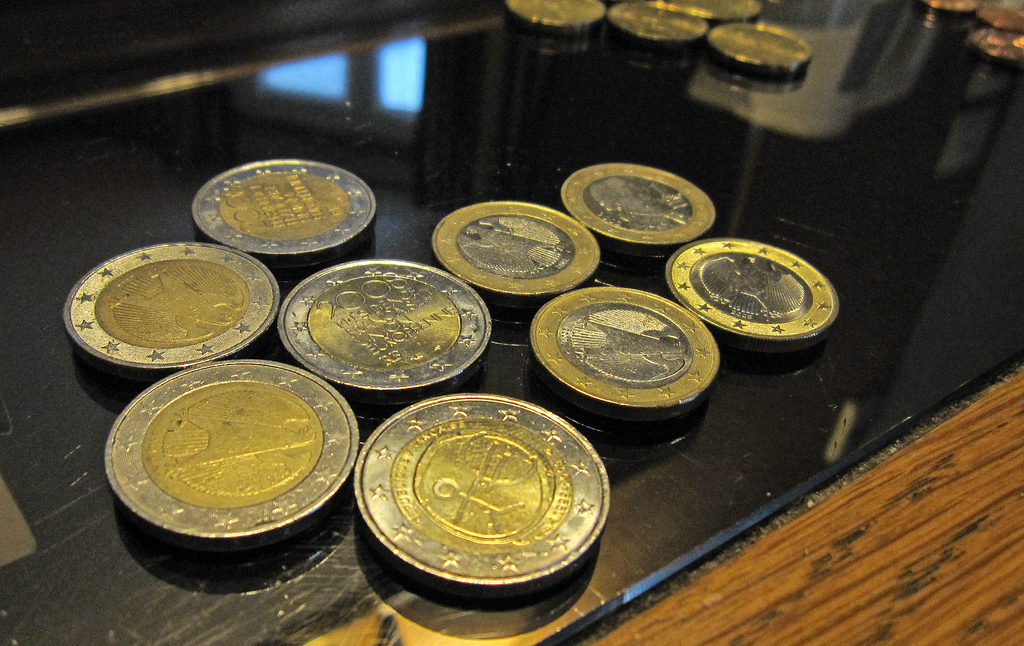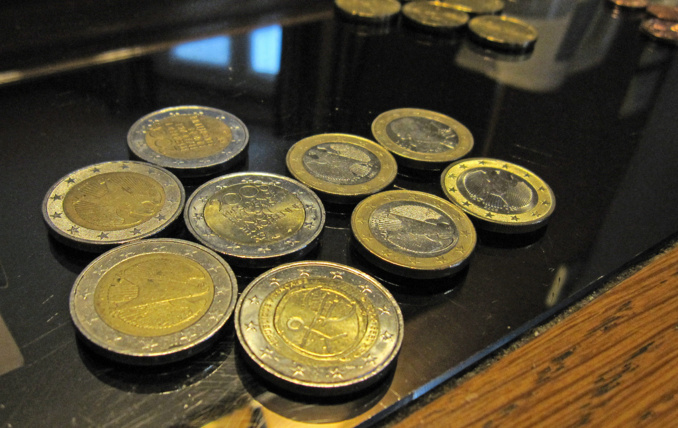So far, the document has no legal force and only provides a basis for further political discussion, which will be facilitated by the withdrawal of the UK from the EU and coming to power of the pro-European French leader Emmanuel Macron. The report notes that the euro area will account for 85% of the EU's total GDP after Brexit. The EC points out the unevenness of integration processes - the union’s currency component has been successfully implemented (the euro is called "a symbol of unity and a guarantee of stability for Europeans"), but the pace of economic integration is low.
Lessons from the 2010-2012 crisis should be used to lower risks in the banking sector and reduce the share of overdue loans, the EC notes. To achieve these goals, it is necessary to complete the process of forming a banking union and a single capital market, which provides for the creation of a common fiscal reserve fund within the framework of a single mechanism for the rehabilitation of banks and a Pan-European deposit insurance system. These measures can be implemented before the new elections to the European Parliament and the completion of the current commission’s powers, that is, until 2019, the report says.
Further steps in the period until 2025, according to the EC, could be creation of the euro area’s own Treasury or the Ministry of Finance, as well as the European Monetary Fund. It is assumed that the Finance Ministry will deal with economic and fiscal supervision, the euro area budget (the "macroeconomic stabilization function") and will coordinate release of "European safe assets" on the basis of the euro area’s sovereign bonds. The issuance of such securities, an analogue of US treasury bonds, will help to weaken the interdependence of banks and sovereign subjects that caused the debt crisis, and provide credit institutions with quality assets capable of acting in the future as a benchmark in European financial markets, the EC believes. The EC leaves open the question whether this will mean a full or partial generalization of the debt within the Eurozone (against which Germany is resolutely opposed).
The eurozone’s budget should be to aimed combat consequences of economic shocks, yet it should not duplicate the functions of the European stabilization mechanism. The funds can be used to support national investment projects, which are usually the first to suffer during a recession, or act as a reinsurance fund for national schemes to combat unemployment during a crisis. Finally, the budget of the euro area can act as a reserve fund "for a rainy day". The budget can be replenished with the anti-crisis fund of the euro area, the general budget of the EU or due to contributions of member countries tied to GDP or to their tax collections.
The creation of the European Monetary Fund (modeled on the IMF) on the basis of the existing European stabilization mechanism should ensure the euro area’s autonomy in the field of financial stability, the European Commission believes. Its task will be to support liquidity of member countries, and it can also act as a reserve of "last hope" for the banking union.
Such large-scale changes will require a redistribution of powers among the structures of the EU. The report noted that the head of the Euro-zone finance ministry could be the president of the Eurogroup, who will also receive the commissioner's authority for the euro. As the new members join the euro area, the Eurogroup itself can become a member of the EU Council.
source: politico.eu
Lessons from the 2010-2012 crisis should be used to lower risks in the banking sector and reduce the share of overdue loans, the EC notes. To achieve these goals, it is necessary to complete the process of forming a banking union and a single capital market, which provides for the creation of a common fiscal reserve fund within the framework of a single mechanism for the rehabilitation of banks and a Pan-European deposit insurance system. These measures can be implemented before the new elections to the European Parliament and the completion of the current commission’s powers, that is, until 2019, the report says.
Further steps in the period until 2025, according to the EC, could be creation of the euro area’s own Treasury or the Ministry of Finance, as well as the European Monetary Fund. It is assumed that the Finance Ministry will deal with economic and fiscal supervision, the euro area budget (the "macroeconomic stabilization function") and will coordinate release of "European safe assets" on the basis of the euro area’s sovereign bonds. The issuance of such securities, an analogue of US treasury bonds, will help to weaken the interdependence of banks and sovereign subjects that caused the debt crisis, and provide credit institutions with quality assets capable of acting in the future as a benchmark in European financial markets, the EC believes. The EC leaves open the question whether this will mean a full or partial generalization of the debt within the Eurozone (against which Germany is resolutely opposed).
The eurozone’s budget should be to aimed combat consequences of economic shocks, yet it should not duplicate the functions of the European stabilization mechanism. The funds can be used to support national investment projects, which are usually the first to suffer during a recession, or act as a reinsurance fund for national schemes to combat unemployment during a crisis. Finally, the budget of the euro area can act as a reserve fund "for a rainy day". The budget can be replenished with the anti-crisis fund of the euro area, the general budget of the EU or due to contributions of member countries tied to GDP or to their tax collections.
The creation of the European Monetary Fund (modeled on the IMF) on the basis of the existing European stabilization mechanism should ensure the euro area’s autonomy in the field of financial stability, the European Commission believes. Its task will be to support liquidity of member countries, and it can also act as a reserve of "last hope" for the banking union.
Such large-scale changes will require a redistribution of powers among the structures of the EU. The report noted that the head of the Euro-zone finance ministry could be the president of the Eurogroup, who will also receive the commissioner's authority for the euro. As the new members join the euro area, the Eurogroup itself can become a member of the EU Council.
source: politico.eu



















